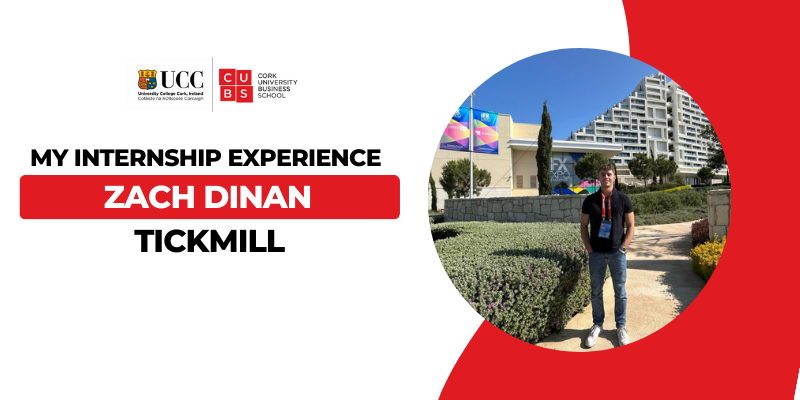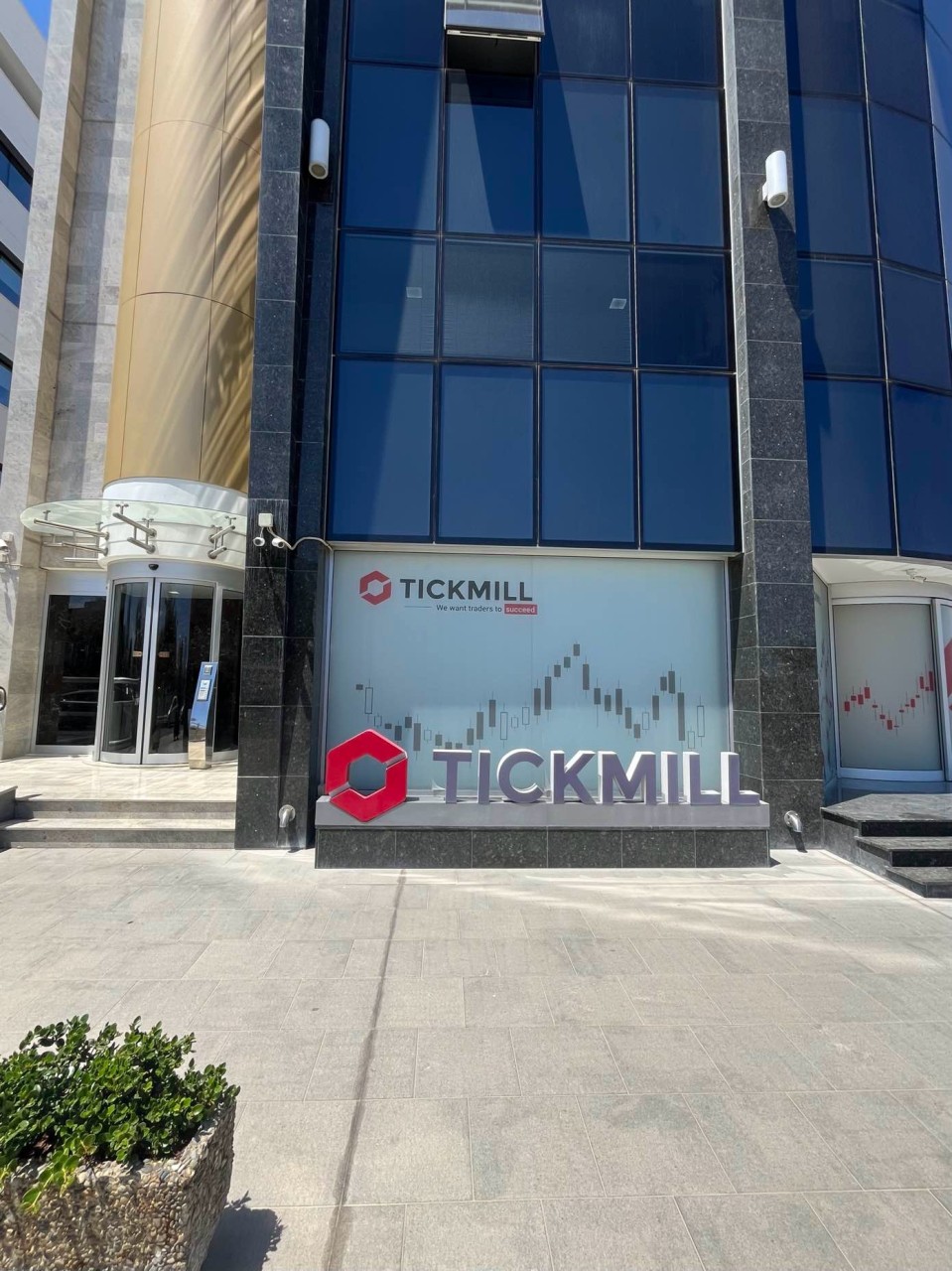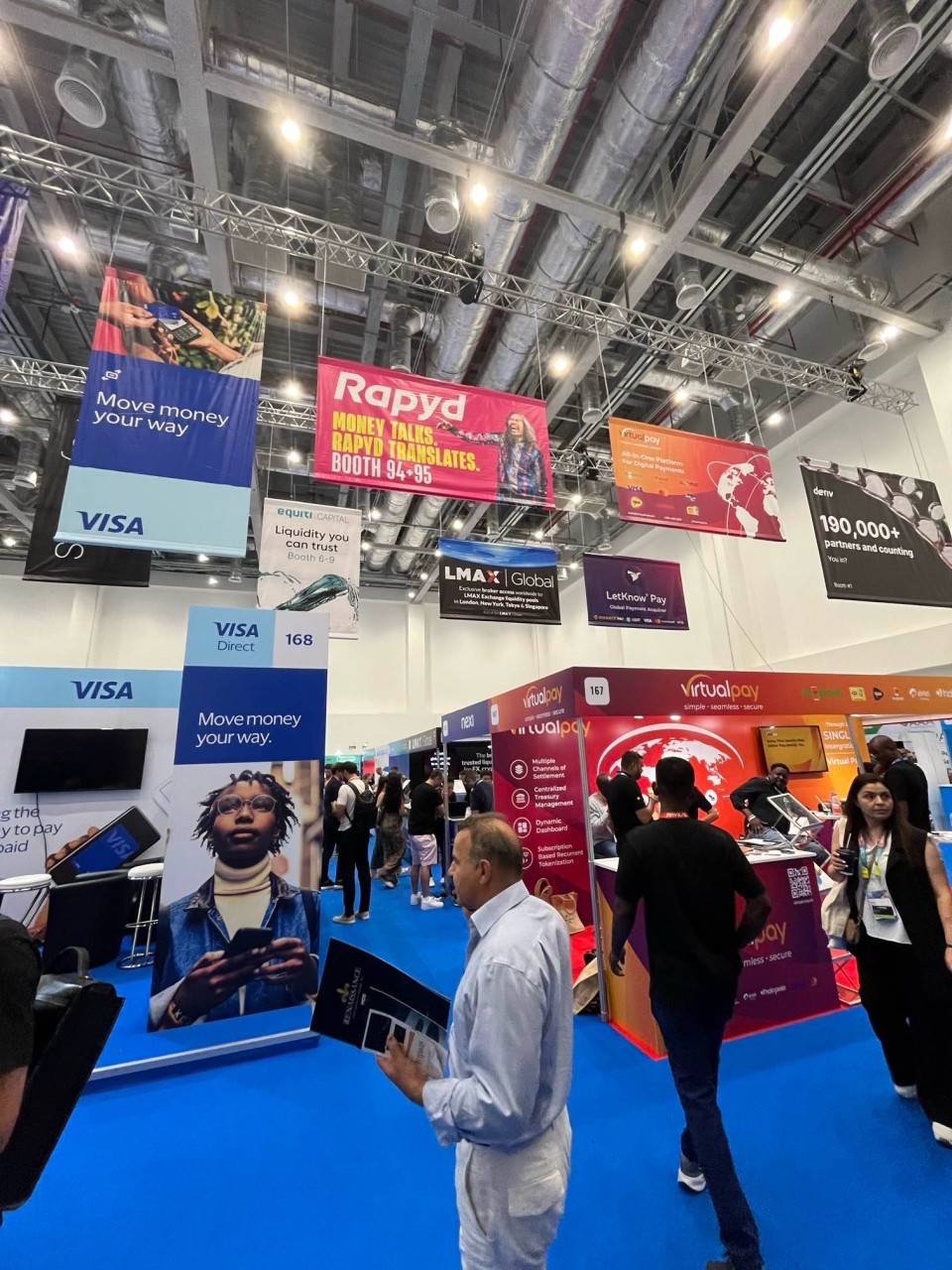
Hi, my name is Zach Dinan and I’m a 4th year International Business with Languages student. Last year I was on my Erasmus in Germany and was lucky enough to get an opportunity to do in an internship for a financial services company called Tickmill. Tickmill is a global online trading broker headquartered in London with multiple offices around the world founded by brothers Ingmar and Illimar Mattus in 2014. CUBS asked me if I could tell them more about it so in this post, I’ll tell you about how I got it, what I did and why Cyprus.

How did I get the Internship?
The German academic year is quite unusual in a way that it only begins mid-October and finishes at the end of July, so when I arrived in Regensburg last year, I knew I had no time during the Summer to do a full 3-month Summer internship. This wasn’t ideal as I didn’t want to be graduating from my course without some professional experience on my CV, this only made it more difficult to receive job offers come the end of my degree. Luckily we had a semester break from the second week of February to the last week of April and I knew that that was my best opportunity to get some hands-on experience so I sent a few emails to connections I had made during my first 2 years in college, wary of the fact it was quite unlikely to get intern work during that time of the year. I received a number of replies but nothing beneficial until I saw a response from Ingmar Mattus. I connected with Ingmar a year prior through a manager at my part time job in Rochestown Park Hotel who had told me he previously worked there too and that we had similar personalities and similar interests in the trading industry. Reading Ingmar’s email, I was delighted to see that he had offered for me to travel to Switzerland and shadow him for a few days during the last two weeks of March, I had my flights booked by the end of the day. During my time in Switzerland, I learned loads from him about his businesses and how he operates, and I tried to make the best impression I could. I knew I had no time to do an internship during the Summer with my second semester only starting in a few weeks’ time and having to register for modules and do exams in July but I said to myself “if I got an offer from Ingmar, I would find time,” with this in mind I decided I’d try my luck and ask him if there was any chance I could do an internship with Tickmill and he said yes! He also gave me complete flexibility on when and where to do it which was a huge bonus. The next issue was figuring out how I was going to fit it in on top of my Erasmus, I knew I would have to at least register for modules in April/May and do my exams in July, so I decided doing one month in June was better than nothing. My idea was to choose modules that didn’t require as much attendance so that I could study from wherever I was going to be working and I checked this with the Program Director of my course to confirm this was okay, and it was, on the condition that I still got all of my 60 credits completed. Even though the headquarters are in London Ingmar suggested I work in their office in Cyprus because the majority of their teams and staff were based there and the office in London was one of their smallest so my scope for learning would have been heavily limited, so Cyprus it was.
What did I do during the Internship?
My role at Tickmill was a ‘trade support intern,’ so my main department was the brokerage. I worked there for the first couple of days getting to know the small team of Peter, Panagiotis, Jay and Vyndare, and then moved to the client support team where I assisted the members in solving and attending to queries and also getting to work with and speak with the German client support member Katerina. I was delighted to meet Katerina as I hadn’t imagined I’d be able to practice my German much while being away and certainly didn’t expect to be able to put my German to use in a professional environment but I was pleasantly surprised as she made an active effort to speak with me and give me opportunities to deal with some of the clients myself through emails and the live chat-bot which really put my German to the test. During this week I received one-on-one training in Futures and Derivatives trading, one of the most complex aspects of the trading and investing world, I wasn’t a complete stranger to these instruments but I certainly felt after the training that I had greater understanding of how they were traded, the pros and cons of trading them compared to the usual Contracts for Differences (CFDs), and the ability to hedge long term investment positions with them against short term turmoil in the markets. I also worked with the Back Office department, this department deal with the onboarding of new clients, so firstly I shadowed the members in this team as they described to me what they were doing and then over the following few days I was able to check the ID validity myself, restrict number of wallets if the client hadn’t passed the World Check software and work through queries we received from the other departments. It was interesting to see in this dept. how every team worked seamlessly together to help each other, constantly messaging each other and keeping each other updated about pending queries.

During my time there I was under the supervision of Johnny Khalil, Executive Director of Tickmill Europe and Head of the Brokerage Department, he shared with me troves of knowledge and insights he has gained from his experience over the years and how he got to an executive role at such a young age of 34. Being able to work so closely with someone with such ambition really shifts your perspectives to what’s possible when looking at future careers and even for the people who surrounded him on a daily basis you could see how standards naturally rose to meet his. After analysing client P/L accounts and discussing patterns of successful and unsuccessful traders I was given two clients accounts to analyse myself blindly. To do this I had to manipulate the data using software known as Power BI and Excel to extract the data I needed, the first thing to look for then was signs of abusive trading, so I ran through each individual trade checking to see common red flags such as hedging, bonus abuse, swaps abuse, introducing broker abuse, negative balance abuse etc. Then I was asked to decide whether I thought in the long term they would be profitable traders or not because depending on the profitability of a client the broker will either send their trades to a larger liquidity provider (A Book) or internalize them (B Book).

A Book – these traders are seen as riskier so whether they’re abusing or get lucky or are just simply good traders the broker doesn’t want to take on the risk of losing large amounts of money and they end up essentially acting as the middleman and shifting the risk onto a larger firm.
B Book – because of human nature, naturally around 80% of people who trade will lose money, therefore the broker takes the opposite side of the position of the client after they have identified their trading patterns and the likelihood that they’re trading style will or will not be sustainable.
I justified the two clients as being short term profitable but long-term net losers due to the ‘Martingale’ strategy, a strategy used to lower the average entry price in a losing position or when the trader increases the position size (or sometimes doubles it) after every loss. This sounds easy but requires copious amounts of capital and has unlimited risk, these traders are seen as people who trade on borrowed luck and are a ticking time bomb. As part of the Brokerage team I was required to attend the weekly meetings where current issues and topics were discussed, a reoccurring problem came from clients blatantly abusing the new bonus schemes and programs introduced by the marketing team yet the ironic tension was that the marketing team’s goal was to attract as many new clients as possible so for them whether the clients were honest and genuine or not was largely irrelevant. Another issue was the pressure from liquidity providers demanding that they received more ‘flow’ or ‘volume’ or they would shut off their prices completely. Back in the Brokerage office then I was part of the Fair Value monitoring presentation we were creating for the regulators for months end where I covered multiple factors of the service provided by Tickmill including: Order execution quality (2% A book/98% B book), spread analysis (best in the market), comparison of spread relative to competitors (tightest in the market), commissions comparison (lowest in the market), the effect of large volume sell offs/buys from wealthier clients, positive and negative slippage charts, speed of execution (less than 300ms) and swap analysis (2nd best in the market).

A highlight of the internship was getting the opportunity to attend the 2025 IFX Expo in Limassol, it was a 2-day B2B event based around face-to-face networking and my favourite part was the speaker sessions. One interesting talk titled GPT vs. Wallstreet – Who’s trading smarter? Brought some thought-provoking ideas around algo trading to mind and begged the question of whether or not in the future retail traders will cease to exist.

Aside from the work, I made the most of the opportunity to explore Cyprus and thanks to the people I worked with I was able to go on a day trip to a nearby city called Paphos where there was a festival on and I got to eat ‘Loukoumades’ which were small fried dough balls drowned in honey – a tasty traditional Cypriot food which is over 90 years old – and visit the old castle and learn the history of the area. Week to week there were always events, my first week there I was invited to a padel tournament by my fellow colleagues and the week after a soccer tournament which was a nice way to explore the city and get to know the people I was working with more, on top of that I seized the opportunity of the baking hot weather by doing some windsurfing and swimming, safe to say I wasn’t missing the Irish waters back home. Before I arrived in Cyprus I checked to see if there were any rugby teams there and luckily, I found the Instagram page for Limassol Crusaders, the rugby club in the city I was going to be living in, so I contacted them and got invited to play with them. I would say to anyone moving abroad, especially Erasmus students, if you play a sport definitely look to see if you can play it in your new city because it gives you considerably better odds to get to know new people and make new friends. I ended up playing tag rugby on the beach with this team every week, going swimming with them after training in all the nicer beaches I would have never discovered if I had just been there on my own, and even got invited to their end of season annual dinner dance ball which really topped it all off.

Overall, my time with Tickmill was an invaluable experience that not only developed my technical knowledge in trading and financial services but also taught me how important the speed of your adaptability, networking, and ability to engage yourself in a team are in an international environment. The exposure to different departments, as well as the chance to learn directly from experienced professionals, has given me a clearer picture of the career path I want to pursue and the standards for which I should aim. Living and working in Cyprus also gave me the chance to step outside my comfort zone, meet incredible people, and build friendships that went far beyond the office. I’m hugely grateful to Ingmar Mattus, Johnny Khalil, and everyone at Tickmill who gave me this opportunity and invested time in helping me grow. For any student considering Erasmus or an internship abroad, my advice would be to seize every opportunity – even if it doesn’t fit the “perfect” timeline - experiences like this will sometimes offer you much more than a 4-month module and lessons that will last you a lifetime.
Learn more about our BSc International Business with Languages programme.

